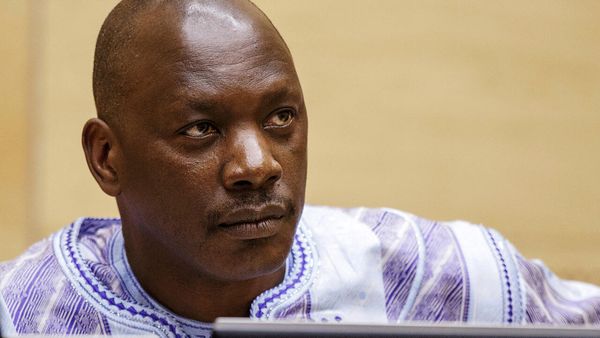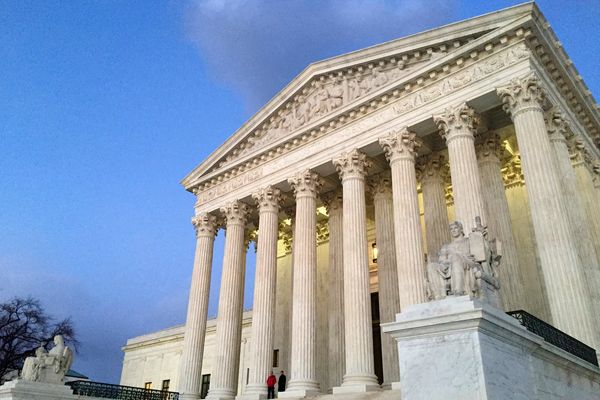A bus driver is alleged to have told his passengers ‘if you think that was fast, watch this’ before the vehicle overturned, killing ten people on board and injuring 25.
Brett Andrew Button, 58, was driving 35 passengers on a 20-minute journey from a wedding reception at the Wandin Estate Winery to the town of Singleton, both in the Hunter Valley wine region of Australia, when the 2009 Volvo bus rolled at a roundabout late Sunday.
Button had been in police custody but was released on bail when he appeared in the Cessnock Local Court on Tuesday charged with 10 counts of dangerous driving in relation to each death and one count of negligent driving.
The Daily Telegraph in Australia reported that some passengers told the court Button said over the microphone minutes into the trip: “If you think that was fast... watch this.” and warned passengers to “fasten your seatbelts”.
Earlier, acting Police Assistant Commissioner David Waddell alleged that Button "entered that roundabout driving in a manner that was inconsistent with the conditions."
"Obviously, the speed was too quick for him to negotiate that roundabout, causing the vehicle to fall onto its left side and cause those injuries," Waddell told reporters.

It was Australia's most deadly road accident since 1994, when a bus skidded on its side across a highway and down a steep embankment in Brisbane, killing 12 people and injuring 38.
Police said Button underwent mandatory testing for drugs and alcohol Sunday night but no impairment was detected.
Prosecutor Courtney Broom argued against Button being released on bail.
"There are 10 witnesses who gave evidence in relation to the prolonged behavior of Mr. Button and dangerous driving," Broom told the court.
"There is evidence in the fact sheet that says they (passengers) fastened their seatbelts," Broom added.
Defense lawyer Chris O'Brien pointed out Button's clean criminal record and only seven traffic offenses on his 30-year driving record.
Magistrate Robyn Richardson said his family ties and bail conditions could reduce his risk of fleeing the country or interfering with witnesses. She also noted a trial was unlikely to be heard before late 2024.
His bail conditions include that he does not drive and that he observes an overnight curfew at his Hunter Valley home of Maitland.
Button sat with his head bowed throughout the short bail hearing and wept when Richardson noted that he was clearly suffering and said she had concerns about his wellbeing.
"It is clear to this court he suffers along with the rest of the community," Richardson said.
Broom said Button could face further charges in relation to the seriously injured survivors.
Of the 25 passengers taken to hospitals, 14 had not been discharged by Tuesday, with two remaining in an intensive care unit in critical but stable condition, Waddell said.
The dead and injured were aged from their 20s to their 60s, Waddell said.
He declined to comment on media reports that Button told passengers through the bus's microphone shortly before the crash, "If you think that was fast ... watch this."
Waddell also declined to comment on reports that passengers were standing moments before the crash.
Linq Buslines, which provides school bus and event charters, owns the bus involved in the crash. Its website says all its buses are equipped with seatbelts.
New South Wales law requires bus passengers to use seatbelts if they are available.
The tragedy has rekindled public debate but Australia's seatbelt laws and whether there should be national rules.

New South Wales Premier Chris Minns said, while not commenting on Button's case, bus drivers in that state were legally responsible for ensuring passengers wore seatbelts.
"It's always the driver of the vehicle whose responsibility it is to ensure that there's enforcement with the law and to reinforce the point," Minns told Australian Broadcasting Corp.
Victoria state Premier Daniel Andrews said: "This is an incident that I'm sure every state and territory will learn from." Several of the passengers were from Victoria.
Andrews said he was open to a national approach on bus seatbelts, but noted complexities around school, charter and public transport types and difficulty in striking a deal.
"Sometimes getting a national agreement can add a long period of time to the process of developing rules," Andrews said.
Tasmania Premier Jeremy Rockliff said his government would also consider any recommendations that come from the crash investigation.







